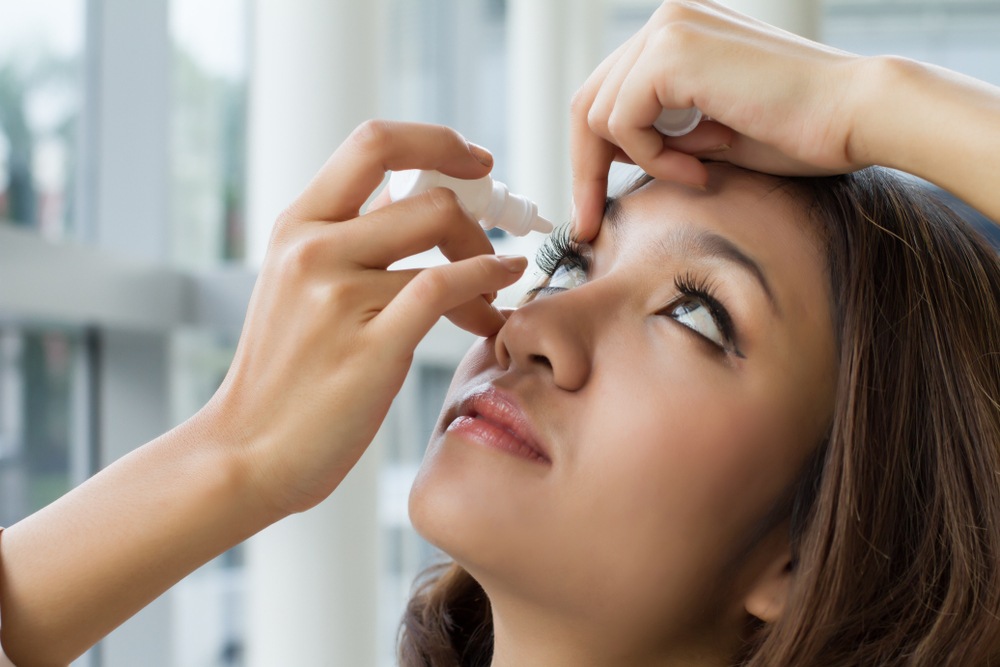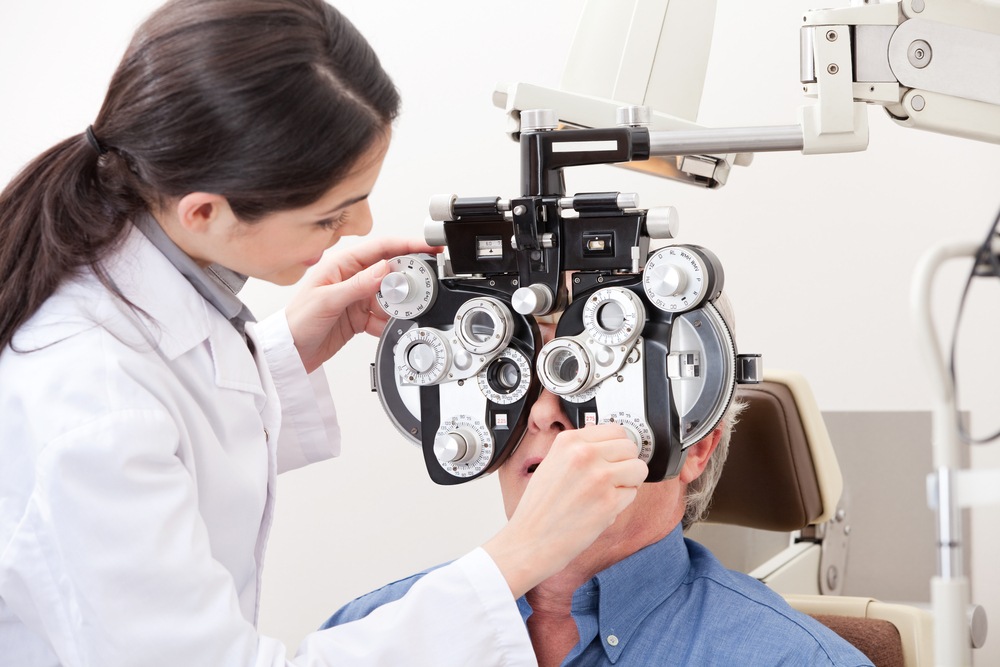Burning eyes is a condition characterized by irritation and caused by various medical conditions. There are few things more concerning than waking up in the morning and thinking, “why do my eyes burn?” Most people have or will experience this eye issue at least once in their lifetime.
It’s essential to have a check-up if you have symptoms like blurry vision, eye pain, or burning, watery eyes. Your doctor will perform a proper diagnosis and recommend the correct method of treatment.
We’ll examine the symptoms of burning eyes, home remedies that work, and doctor’s treatment where home remedies don’t work.
Symptoms of Burning Eyes
Burning eyes are usually irritated and may or may not turn red. The burning sensation is accompanied by symptoms such as:
- Watery eyes
- Pain in the eyes
- Discharge and itching
Genetics, diseases, diet, allergies, and even the weather are often the cause of burning eyes.
It’s important to seek medical attention if the burning sensation doesn’t go away even after using home remedies.
Causes of Burning Eyes
The following are common causes of burning eyes.
Blepharitis
Blepharitis is an eye condition where eyelids are inflamed due to irritants or bacteria. Infected eyes are usually itchy and have a burning sensation. The base of the eyes also discharges oily dandruff-like flakes. These symptoms are more pronounced in the morning. You may wake up to find your eyelids stuck together, and then think, “why do my eyes burn?”
Blepharitis can be anterior, affecting the junction between the eyelids and eyelashes. It can also be posterior, affecting where the eyelid meets the eyeball. Contrary to popular belief, Blepharitis isn’t caused by poor eye hygiene. Blepharitis can be easily treated at home by:
- Using eyelid scrubs
- Using soothing eye drops
- Taking oral or topical antibiotics
- Warm compresses to unclog tear glands
If home remedies fail, your doctor may carry out the following treatments at the office:
- Intense pulsed light therapy – Opens clogged eyelids and reduces inflammation
- Thermal pulsation treatment – Melts obstructing material
- Electromagnetic lid margin debridement – Removes mites and bacteria
Blepharitis affects both eyes equally. The symptoms come and go, but it’s not a life-threatening condition.
Dry Eyes

Dry eyes can result from wearing contact lenses, medication, or irritants in the eyes.
According to the Journal of Ophthalmology, about 16.4 million Americans have been diagnosed with dry eye disease. Dry eye syndrome can be mild or chronic. Temporary dryness is treatable at home by resting the eyes, using eye drops, and avoiding contact with irritants.
Chronic dryness occurs when eyes don’t produce enough tears or poor-quality tears that lack enough oil, water, and mucus. This then becomes the cause of burning eyes. Other causes of dry eyes are:
- Refractive eye surgeries
- Eye infections
- Smoke and strong winds
- Diabetes and arthritis
- Wearing contacts for too long
The solution to dry eyes is to prevent moisture loss, which can be accomplished by:
- Increasing fluids intake to moisturize eyes
- Taking supplements to improve tear quality
- Surgery to prevent tear drainage
- Wearing sunglasses outdoors
- Humidifying the air if it’s dry
Toxins And Allergens
Why do my eyes burn? The cause of burning eyes could be an allergic reaction to pollen, pets, and dust. Most of the time, when the source of allergy or toxins is removed, irritation ceases. Large irritants like sand may scratch the eyes and cause burning watery eyes, so rolling or rubbing the eyes should be avoided as much as possible until the irritant is removed.
If large amounts of chemicals such as detergents or sprays get into the eyes, seek a doctor’s attention immediately to avoid the risk of losing your eyesight. Burning eyes caused by allergens and toxins can be solved by:
- Staying away from the source of allergies and toxins
- Taking antihistamines to neutralize the allergen’s effect
- Wearing protective glasses when using chemicals
Conjunctivitis
Conjunctivitis (pink eye) occurs when the conjunctiva, or the eye’s transparent membrane, becomes inflamed. The eyes swell and turn red, and become the cause of burning eyes. Conjunctivitis can be caused by:
- Allergic reaction to pollen, dust, or smoke
- viruses, bacteria, amoeba, and parasites
- Incompletely open tear ducts in newborns
Conjunctivitis is a contagious disease. Avoid contact with other people if your eyes are red, itchy, burning, and have a watery discharge. Your doctor may prescribe antibiotics to give you relief and to avoid spreading the disease. Pink eye rarely causes complications. If it results from a sexually transmitted disease, it can be passed on to the child during birth.
Surfer’s Eye
Surfer’s eye is a growth on the eye’s conjunctiva that begins with a small yellow spot. The growth expands towards the nose. If it grows further, it covers the cornea and blocks your vision, further exacerbating your burning watery eyes. These growths are caused by overexposure to UV rays and wind. The condition is not serious, but you can seek treatment if the growth impairs your vision.
The symptoms range from mild to serious and include:
- Redness and swelling of the conjunctiva
- Blurry vision
- Gritty feeling in the eye
Protect your eyes with sunglasses outdoors to prevent this condition. Lubricating steroid eye drops can solve the problem if you have already been affected. Surgery is recommended if the growth grows large enough to affect your vision. The surgeon may transplant a piece of tissue onto the area to prevent recurring growth.
Sjogren’s Syndrome
Sjogren’s syndrome occurs when the body’s immune system attacks glands that lubricate the eyes, making the eyes dry. Out of ten people who have it, nine are women aged 40-60. The symptoms of Sjogren’s syndrome include:
- Burning or stinging eyes
- Sensitivity to light
- Dry and blurry eyes
- Discomfort when wearing contact lenses
Your doctor will do a Schirmer’s test to confirm if you have the condition. A tiny piece of paper is placed under your eyelid to measure how much tears you make in about five minutes.
A dye test is also added to your tears to see how much damage dryness has done to your cornea. The doctor may also test your eyelids glands to determine whether they have enough lubrication.
For treatment, your doctor may recommend lubricating eye drops or ointments to keep your tears from drying out too quickly.
Ocular Rosacea
Ocular rosacea is a condition that triggers redness, inflammation, and itching of the eyes. It develops in people with rosacea, where the facial blood vessels swell, and the disease spreads to the eyes, causing a burning sensation. Apart from swelling of the facial blood vessels, the disease may be caused by eyelash mites, bacteria, blocked eyelid glands, and genetics.
The symptoms may precede those of rosacea, happen simultaneously or come after. They may include:
- Gritty feeling in the eyes
- Sensitivity to light
- Recurring eye infections
- Dry eyes
- Blurred vision
- Swollen and red eyelids
Ocular rosacea has no cure, but medication and a good eye care routine can control the signs and symptoms.
Get Your Eyes Checked Today

If you’ve been persistently thinking ”why do my eyes burn?”, it’s important to have them checked for other underlying causes. Burning watery eyes caused by environmental factors such as wind, allergens, or dust usually resolve themselves when you stay away from the irritant. Some cases like Sjogren’s syndrome or Ocular rosacea are more complicated and require a doctor’s attention. Even when conditions like Ocular rosacea are not curable, your doctor will prescribe treatment to manage the condition.
Take care of your eyes because some causes of burning eyes are preventable. You can wear safety goggles when handling chemicals or wear sunglasses to prevent UV rays from damaging your eyes. For a comprehensive eye exam, contact our team today to schedule an appointment.

